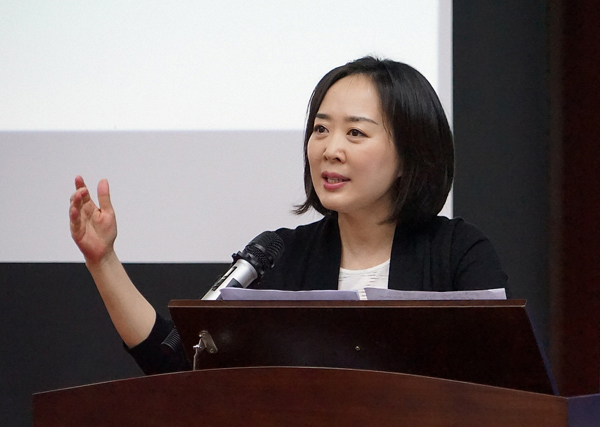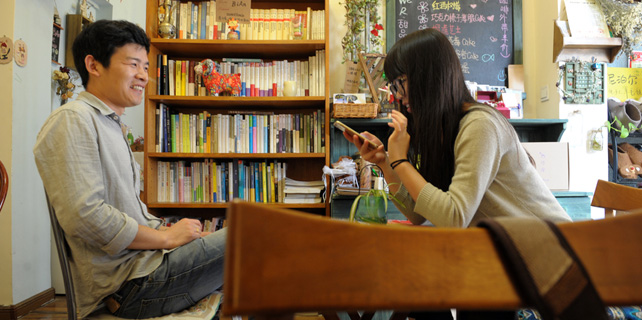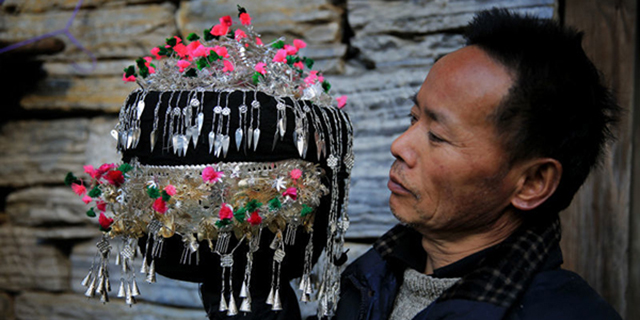Feminine touch to e-commerce
 |
|
Diane Wang, founder and CEO of DHgate, introduces the APEC Cross-Border E-Commerce Training Workshop (CBET) in Papua New Guinea. PROVIDED TO CHINA DAILY |
DHgate's Diane Wang won't rest until the online shopping industry adopts world-class standards
When China and e-commerce are mentioned in the same breath, Alibaba may be the first thing that pops up in mind, but Diane Wang, 49, could lay claim to being a co-pioneer in this field along with Jack Ma.
In 1999, the year that Ma founded Alibaba, she co-founded and served as the first CEO of Joyo.com, China's first business-to-consumer or B2C e-commerce platform. In 2004, Joyo was acquired by Amazon as part of its foray into the China online shopping market.
The same year, Wang went on to found and lead DHgate.com, a cross-border business-to-business e-commerce platform, embracing a technology-based model when international trade via conventional physical channels was still the norm.
According to iResearch Consulting Group, China, the world's largest e-commerce market, boasts 16.4 trillion yuan ($2.4 trillion) in annual digital turnover, with consumer online shopping alone reaching 3.8 trillion yuan last year.
So, it is with some delight that Wang notes cross-border e-commerce has evolved quickly since 1999 and is now considered essential for success in a globalized world.
"I'm proud that we foresaw this trend, which helped us cement our place and gain an advantage in what turned out to be an extremely competitive environment," she said.
DHgate connects China-based small and medium-sized enterprises or SMEs with buyers globally, thus providing a safer and efficient online marketplace. It serves 10 million registered buyers from over 230 countries and regions by connecting them to over 1.4 million Chinese suppliers from 34 regions for over 30 million products.
Wang said: "In the blood of DHgate, we have a very strong innovation gene. We're driving innovation in many industries as well."
Wang illustrates the point with several instances. "We launched internet-based financial services for SMEs based on their credit record with China Construction Bank. Our 'Online Silk Road' under the Belt and Road Initiative seeks to promote bilateral trade agreements for cross-border e-commerce.
"We've established two platforms to help Chinese SMEs go overseas. The first is a trading platform where Chinese enterprises could get overseas orders continuously and close deals.
"The second is an integrated platform for international trade where services like online payments, logistics, storage, supply-chain finance, customs clearances and tax refunds will be offered."
Wang said cross-border e-commerce is helping strengthen traditional industry. For example, emergence of e-commerce has led to industrial belts or e-commerce parks in many Chinese cities, encouraging local enterprises to add online channels and think of improving the quality of their products and services so as to reach export standard.
"We plan to establish DTCs (digital trade centers), which bundle online and offline transactions for various services like storage and delivery. We also equip such centers with marketing and training functions... We will open the first DTC in Hungary, and then in New Zealand and Malaysia," Wang said.
Asked about the biggest challenge facing cross-border e-commerce, Wang said it is the need to establish standards. Supportive policies are key too, just like training and shortage of talent are concerns, she said.
So, DHgate is trying to consolidate and expand China's leading role in e-commerce by evolving systems and standards, and by encouraging innovation and self-regulation. "How policies adapt to the rapid growth of cross-border e-commerce and digital trade-this is a common concern for China and the world," said Wang.
Having started her career with tech giants such as Microsoft Corp and Cisco Systems Inc-she was the youngest high-level manager in the China region and the only woman on the Cisco management team-Wang brings to her job a global outlook.
This trait makes her a shoo-in for international events and industry bodies. In 2011, she was chosen to represent China at the APEC Business Advisory Council, a recognition of her status as a leading advocate of e-commerce at SME level in China and abroad.
She is also the co-chair of the ABAC SME Working Group, chair of the APEC Women Leadership Forum, and the first rotating chairperson of the Entrepreneurs Committee of the China APEC SME Alliance.
In January 2015, she became the Chinese representative to G20 Business Summit or B20, serving as the co-chair of B20 SME Taskforce.
Wang initiated APEC CBET, which stands for Cross-Border E-commerce Training, and seeks to provide SMEs with the necessary training they need to go global
"In the past, China was a mere participant or part of the audience at APEC. However, it now has a leading role in CBET," said Wang, adding more and more countries have taken part in the project.
In November 2015, DHgate facilitated the first Sino-Turkish cross-border e-commerce treaty, whose signing in Antalya, Turkey, was witnessed by Chinese President Xi Jinping and his Turkish counterpart Recep Tayyip Erdogan. The treaty marked the online extension of China's Belt and Road Initiative.
"We pay attention to the emerging markets such as the ASEAN and Latin America, which have huge potential in cross-border e-commerce," said Wang.
















